Modeling methods of cylindrical and axisymmetric waterbomb origami based on multi-objective optimization
Mingyue Zhang,1,2 Yan Zhao*,2
1School of Film and Television, Wuxi City College of Vocational Technology
2School of Computer Science and Communication Engineering, Jiangsu University
Abstract:
The basic principle of origami is to use two-dimensional flat materials to obtain various three-dimensional target shapes by folding crease patterns. Among them, the study of waterbomb tessellations inspires the design and functionality implemen tation of engineering structures. However, there are some optimization spaces when building three-dimensional structures based on waterbomb origami. In this paper, we propose modeling methods to construct cylindrical and axisymmetric three dimensional waterbomb tessellations with multi-objective optimization. Our methods aim to solve two optimization problems: (I) Constructing waterbomb tessellations to approximate the target surface more accurately. (II) Unifying waterbomb units to construct flat-foldable three-dimensional waterbomb tessellations. In addition, we present waterbomb approximations, the performance of optimization, rigid folding sequences, comparison of crease patterns, and physical origami fabrications to demonstrate the validity of our methods. Our work can expand the exploration of cylindrical and axisymmetric origami inspired structures, such as foldable roofs, tubular materials, etc.
Class I optimization results

Class II optimization results
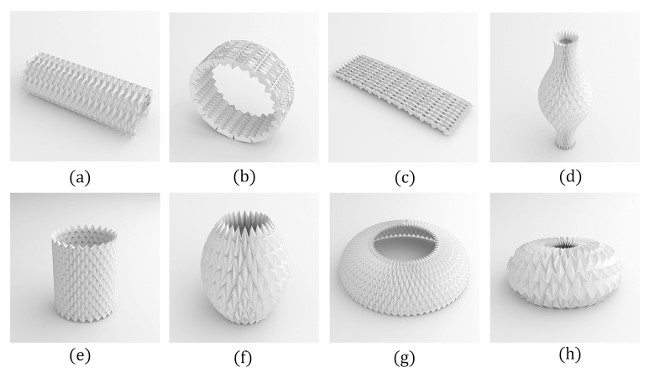
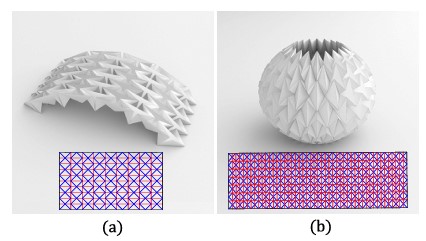
Rigid-folding sequences
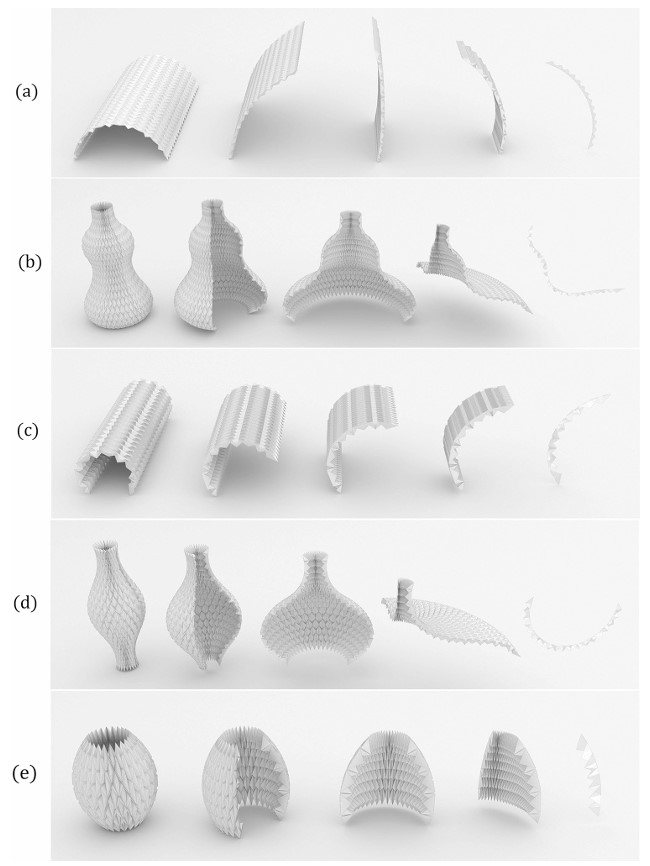
Comparison of crease patterns
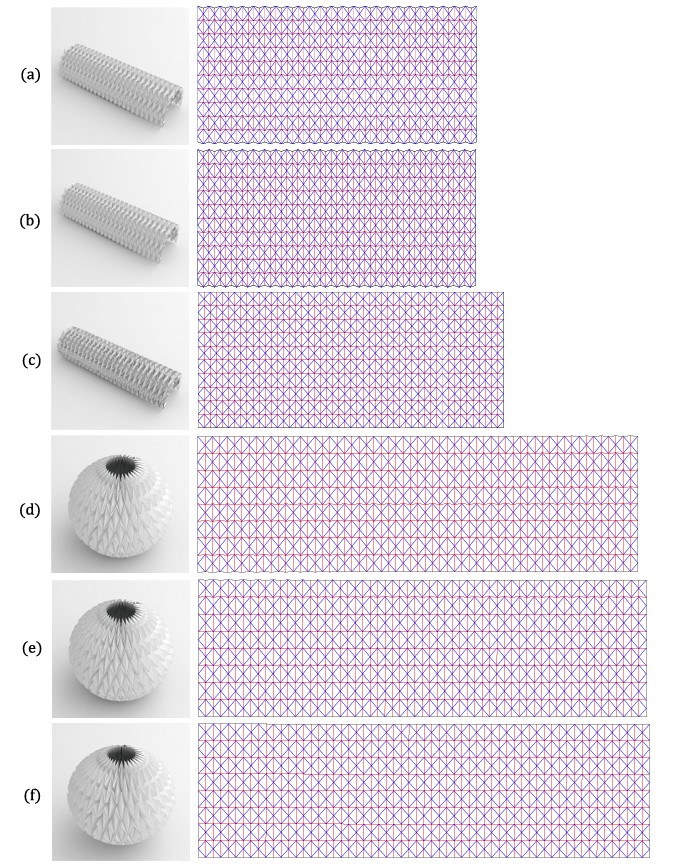
Fabrications
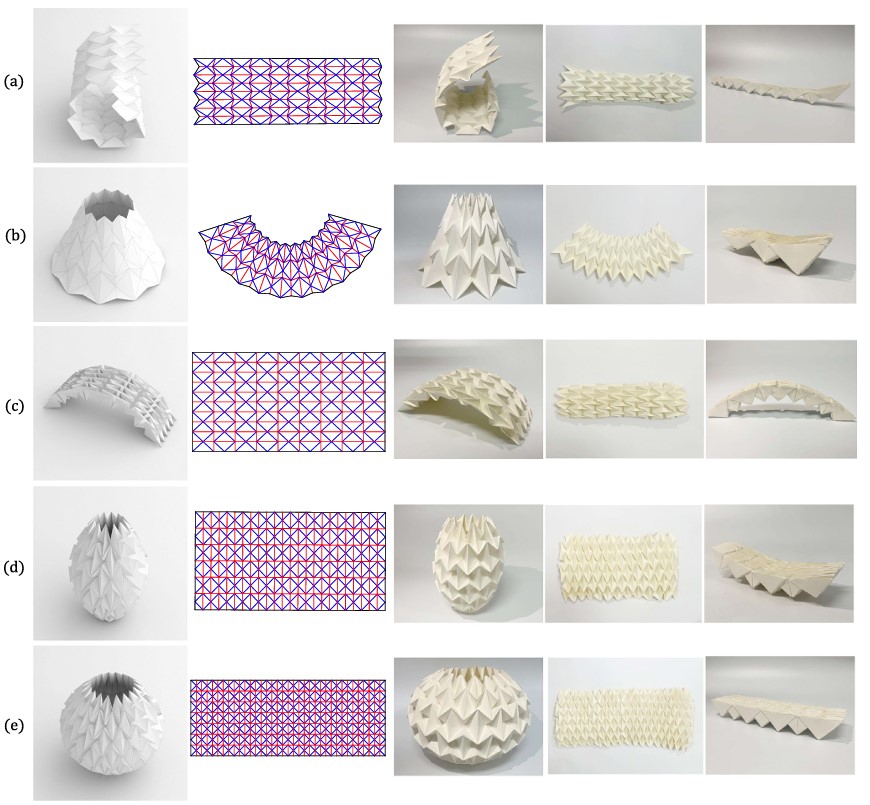
Publications:
- Mingyue Zhang, Yan Zhao*:"Modeling methods of cylindrical and axisymmetric waterbomb origami based on multi-objective optimization", Multimedia Systems.([DOI:https://doi.org/10.1007/s00530-024-01326-8])
BibTeX Citation
title={Modeling methods of cylindrical and axisymmetric waterbomb origami based on multi-objective optimization},
author={Zhang, Mingyue and Zhao, Yan},
journal={Multimedia Systems},
volume={30},
number={3},
pages={135},
year={2024},
publisher={Springer}
}